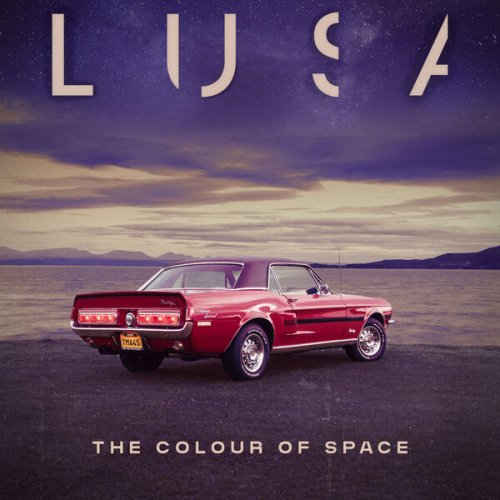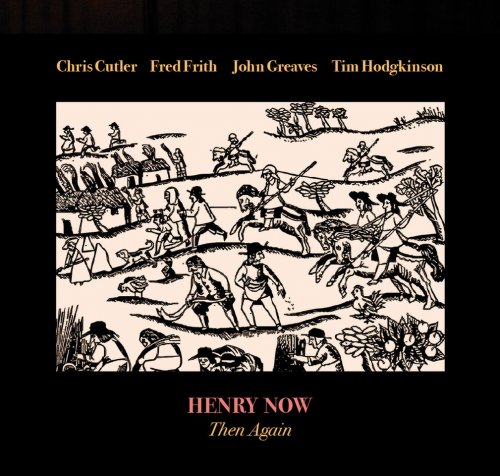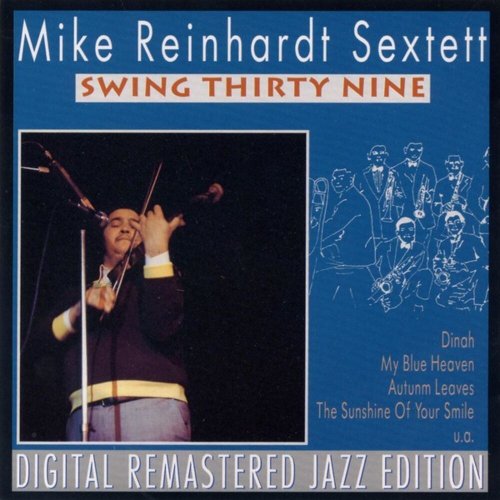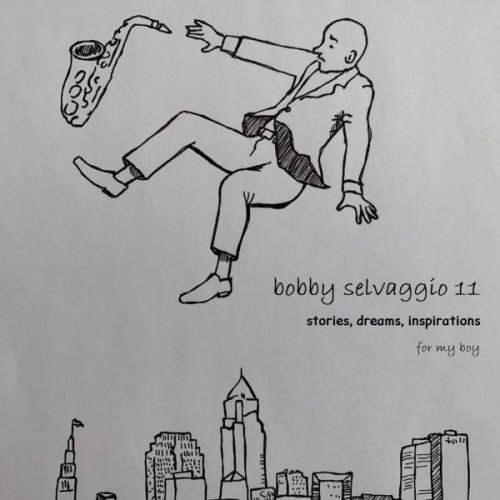Lusa - The Colour Of Space (2024) Hi-Res

Artist: Lusa
Title: The Colour Of Space
Year Of Release: 2024
Label: Sia6 Records
Genre: Pop, Electronic, Synth-pop
Quality: 320 / FLAC (tracks) / FLAC (tracks) 24bit-96kHz
Total Time: 52:59
Total Size: 123 / 309 Mb / 1.02 Gb
WebSite: Album Preview
Tracklist: Title: The Colour Of Space
Year Of Release: 2024
Label: Sia6 Records
Genre: Pop, Electronic, Synth-pop
Quality: 320 / FLAC (tracks) / FLAC (tracks) 24bit-96kHz
Total Time: 52:59
Total Size: 123 / 309 Mb / 1.02 Gb
WebSite: Album Preview
01. TMAAS (with Beth Malcolm) (4:36)
02. Probably (with Beth Malcolm) (3:55)
03. Hawea (6:06)
04. Crosses (with Beth Malcolm) (5:51)
05. Coloured In (with Beth Malcolm) (3:57)
06. Glaiste (5:41)
07. Lucia (with Beth Malcolm) (4:48)
08. Flight (4:43)
09. Favourite Place (with Beth Malcolm) (3:54)
10. El Seq (5:11)
11. Play Hats (with Beth Malcolm) (4:17)
To repeat the back story, Lusa is the baby and brainchild of Innes Strachan, the key synthsman from Niteworks, who bid their farewell as a group this winter, with a series of gigs spread between Aberdeen and London. With his cohorts returning, largely, to their day-jobs, Strachan wanted and needed to continue his musical journey, a shock diagnosis of multiple sclerosis, in 2020, further concentrating his mind and resolve.
Niteworks were, and, if briefly, still are, the prime proponents of Gaelictronica, or Neo-Trad, their big sky(e) music from Portree, morphing Gaelic song with Balearic beats, at once convincing and consumingly evocative. However, far from a solo project, he has teamed up with some kindred souls, new and familiar. First up is Donald Macdonald, who co-writes the songs; a local island boy, with his own band, The Islands, his background is more in guitar based Glaswegiana, that curiously Scottish fusion of trad with US blue collar sensibility, often with distinct fumes of country. (Also, for those needing to know, son of Calum, nephew of Rory, the Runrig men!)
Next up, Beth Malcolm, whose vocals have latterly so invigorated Niteworks live, her high octane onslaught through John Riley a highlight of both their show and A’ Ghrian, their last album. She, obviously, sings, also writing one of the songs. Ruairaidh Graham, Strachan’s Niteworks bandmate, adds his characteristic mix of percussion, organic and electronic both , with additional input from Keir Long on piano, and Laura Wilkie‘s string arrangements. Itchy ears, already?
It is with TMAAS that the album opens, a characteristically flickering slow burn, with skittery synths and percussion, over which Malcolm’s gilded breathy tones soar. If anything the comparison might be with London Grammar, although the distinct Caledonian inflections of the vocal gives applicable contrast. And we are in English, note: Malcolm is not a Gael, hailing from Perth, although she might cite Scots as her language. It is a good introduction, but it is with Probably that the album really cuts through facsimile, an achingly beautiful ballad. The balance between beat and hymnal torch song is deft and confident. Followed by the instrumental, Hawea, it is a glorious 1,2,3, with the tune itself seemingly coming freshly packed in a time capsule from Ibiza twenty years ago, Robert Miles with a Buddha Bar sheen.
Crosses returns to the moody brooding template that most of the songs occupy; I believe it comes automatically anywhere in the shadow of the Black Cuillin. Once more, the transitions of time and metre are handled with confidence. Unsurprisingly, it is the hand of Andrea Gobbi, master producer of all things neo-trad, co-producer with Strachan, at the controls. And if Malcolm was a revelation with Niteworks, here she is triumphant, any comparison with Beth Malcolm, wholesome folk singer, now forgotten. Coloured In occupies a more substantive bassline, tossing aside the earlier ethereality for, blimey, a very Human League-y construction. Imagine if Susanne Sulley had sung a whole song and had had singing lessons.
Glaiste is a further trancey instrumental offering. If anyone was expecting anything more cutting edge, I guess they shouldn’t forget that Café del Mar, the Energy 52 tune that namechecked the chill out destination, was, for a long time, part of the Niteworks repertoire. Me, I love it, off-kilter synthetic handclaps and all. Sometimes hard to discern within the fauxchestration, it is here that Wilkie, abetted by Emily Pantel-Bowden, slot in, with their violins. Actually, once attuned, they become evident near throughout, with Lucia, following, conjuring up that special place where strings and synths complement each other the best. Another striking Malcolm vocal, too.
Flights has the characteristic walking rhythms of a descending low synth figure, repeated piano and click drums. But it is a backdrop to spoken word, another Niteworks familiar. However, rather than any Gaelic Bard or featuring any extravagantly whiskered teuchter, this is from the work of Black Isle Colin Bramwell, narrated by Lorne Macfadyen, a Skye actor, if, here, with a decidedly Brooklyn accent, in the style of Philip Marlowe. And why not, but, with talk of filling tanks with gas, that makes it feel about right. Malcolm then adds one of her own compositions, Favourite Place, where she channels a mix of Carly Simon and a less glottal Chrissie Hynde. It makes for a palate cleansing change of direction, which, if still definedly electronic, adds another colour to the overall palette. It is rather lovely.
El Seq, the penultimate track, piles back up the beats, for another burst of Balearica, melody, as ever, leading the rhythm, rather than the reverse, with some wordless vocalisations, a controlled wail that gradually, and gracefully, unravels. Which leaves only the sonic majesty of Play Hats, as reviewed earlier. With repeat listens and within the context of the whole album, it makes for even a greater statement, Malcolm’s keening in full command of the notes available and emotions required. The piano, synths and strings slot themselves about her in a dignified processional, Graham applying a steady and slow heart beat. Never mind play Hats, play Play Hats again.
This isn’t folk music and isn’t trad either, but is is shiny and sophisticated electro-pop of the first order and deserves an audience. Let’s help Lusa get it.
Niteworks were, and, if briefly, still are, the prime proponents of Gaelictronica, or Neo-Trad, their big sky(e) music from Portree, morphing Gaelic song with Balearic beats, at once convincing and consumingly evocative. However, far from a solo project, he has teamed up with some kindred souls, new and familiar. First up is Donald Macdonald, who co-writes the songs; a local island boy, with his own band, The Islands, his background is more in guitar based Glaswegiana, that curiously Scottish fusion of trad with US blue collar sensibility, often with distinct fumes of country. (Also, for those needing to know, son of Calum, nephew of Rory, the Runrig men!)
Next up, Beth Malcolm, whose vocals have latterly so invigorated Niteworks live, her high octane onslaught through John Riley a highlight of both their show and A’ Ghrian, their last album. She, obviously, sings, also writing one of the songs. Ruairaidh Graham, Strachan’s Niteworks bandmate, adds his characteristic mix of percussion, organic and electronic both , with additional input from Keir Long on piano, and Laura Wilkie‘s string arrangements. Itchy ears, already?
It is with TMAAS that the album opens, a characteristically flickering slow burn, with skittery synths and percussion, over which Malcolm’s gilded breathy tones soar. If anything the comparison might be with London Grammar, although the distinct Caledonian inflections of the vocal gives applicable contrast. And we are in English, note: Malcolm is not a Gael, hailing from Perth, although she might cite Scots as her language. It is a good introduction, but it is with Probably that the album really cuts through facsimile, an achingly beautiful ballad. The balance between beat and hymnal torch song is deft and confident. Followed by the instrumental, Hawea, it is a glorious 1,2,3, with the tune itself seemingly coming freshly packed in a time capsule from Ibiza twenty years ago, Robert Miles with a Buddha Bar sheen.
Crosses returns to the moody brooding template that most of the songs occupy; I believe it comes automatically anywhere in the shadow of the Black Cuillin. Once more, the transitions of time and metre are handled with confidence. Unsurprisingly, it is the hand of Andrea Gobbi, master producer of all things neo-trad, co-producer with Strachan, at the controls. And if Malcolm was a revelation with Niteworks, here she is triumphant, any comparison with Beth Malcolm, wholesome folk singer, now forgotten. Coloured In occupies a more substantive bassline, tossing aside the earlier ethereality for, blimey, a very Human League-y construction. Imagine if Susanne Sulley had sung a whole song and had had singing lessons.
Glaiste is a further trancey instrumental offering. If anyone was expecting anything more cutting edge, I guess they shouldn’t forget that Café del Mar, the Energy 52 tune that namechecked the chill out destination, was, for a long time, part of the Niteworks repertoire. Me, I love it, off-kilter synthetic handclaps and all. Sometimes hard to discern within the fauxchestration, it is here that Wilkie, abetted by Emily Pantel-Bowden, slot in, with their violins. Actually, once attuned, they become evident near throughout, with Lucia, following, conjuring up that special place where strings and synths complement each other the best. Another striking Malcolm vocal, too.
Flights has the characteristic walking rhythms of a descending low synth figure, repeated piano and click drums. But it is a backdrop to spoken word, another Niteworks familiar. However, rather than any Gaelic Bard or featuring any extravagantly whiskered teuchter, this is from the work of Black Isle Colin Bramwell, narrated by Lorne Macfadyen, a Skye actor, if, here, with a decidedly Brooklyn accent, in the style of Philip Marlowe. And why not, but, with talk of filling tanks with gas, that makes it feel about right. Malcolm then adds one of her own compositions, Favourite Place, where she channels a mix of Carly Simon and a less glottal Chrissie Hynde. It makes for a palate cleansing change of direction, which, if still definedly electronic, adds another colour to the overall palette. It is rather lovely.
El Seq, the penultimate track, piles back up the beats, for another burst of Balearica, melody, as ever, leading the rhythm, rather than the reverse, with some wordless vocalisations, a controlled wail that gradually, and gracefully, unravels. Which leaves only the sonic majesty of Play Hats, as reviewed earlier. With repeat listens and within the context of the whole album, it makes for even a greater statement, Malcolm’s keening in full command of the notes available and emotions required. The piano, synths and strings slot themselves about her in a dignified processional, Graham applying a steady and slow heart beat. Never mind play Hats, play Play Hats again.
This isn’t folk music and isn’t trad either, but is is shiny and sophisticated electro-pop of the first order and deserves an audience. Let’s help Lusa get it.



![The Mood Mosaic - Feelin' Funky! (2025) [Hi-Res] The Mood Mosaic - Feelin' Funky! (2025) [Hi-Res]](https://www.dibpic.com/uploads/posts/2025-12/1766822228_smv6og19mj83k_600.jpg)


![Nighthawks - Paris Dakar (2025) [Hi-Res] Nighthawks - Paris Dakar (2025) [Hi-Res]](https://www.dibpic.com/uploads/posts/2025-12/1767093398_folder.jpg)

